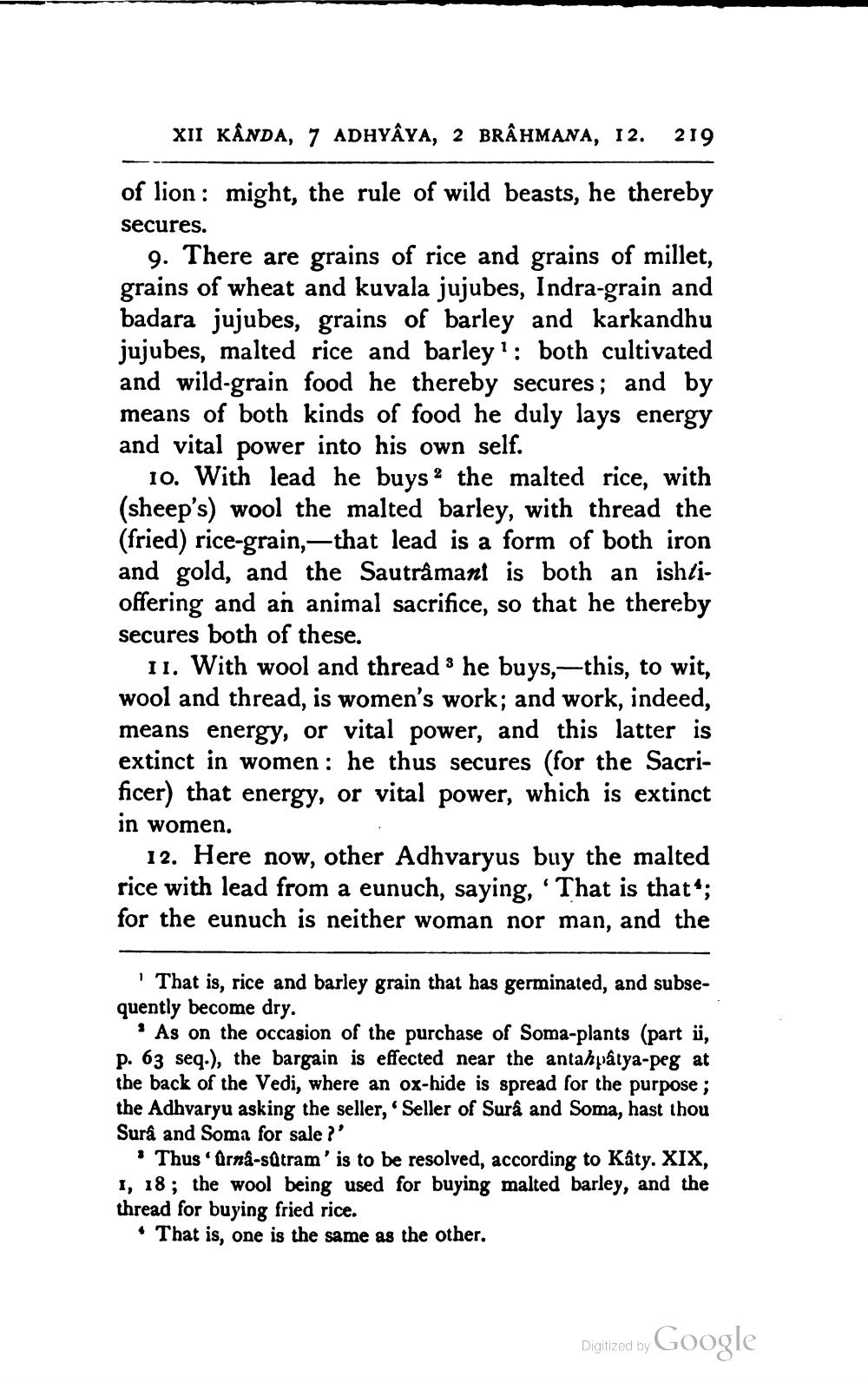________________
XII KÂNDA, 7 ADHYÂYA, 2 BRÂHMANA, 12. 219
of lion: might, the rule of wild beasts, he thereby secures.
9. There are grains of rice and grains of millet, grains of wheat and kuvala jujubes, Indra-grain and badara jujubes, grains of barley and karkandhu jujubes, malted rice and barley': both cultivated and wild-grain food he thereby secures; and by means of both kinds of food he duly lays energy and vital power into his own self.
10. With lead he buys? the malted rice, with (sheep's) wool the malted barley, with thread the (fried) rice-grain,—that lead is a form of both iron and gold, and the Sautrâmant is both an ishtioffering and an animal sacrifice, so that he thereby secures both of these.
11. With wool and thread : he buys,—this, to wit, wool and thread, is women's work; and work, indeed, means energy, or vital power, and this latter is extinct in women: he thus secures (for the Sacrificer) that energy, or vital power, which is extinct in women.
12. Here now, other Adhvaryus buy the malted rice with lead from a eunuch, saying, “That is that*; for the eunuch is neither woman nor man, and the
That is, rice and barley grain that has germinated, and subsequently become dry.
As on the occasion of the purchase of Soma-plants (part i, P. 63 seq.), the bargain is effected near the antahpâtya-peg at the back of the Vedi, where an ox-hide is spread for the purpose ; the Adhvaryu asking the seller, Seller of Surâ and Soma, hast thou Surâ and Soma for sale ?'
• Thus“ůrna-sūtram' is to be resolved, according to Kâty. XIX, 1, 18; the wool being used for buying malted barley, and the thread for buying fried rice.
. That is, one is the same as the other.
Digitized by Google




